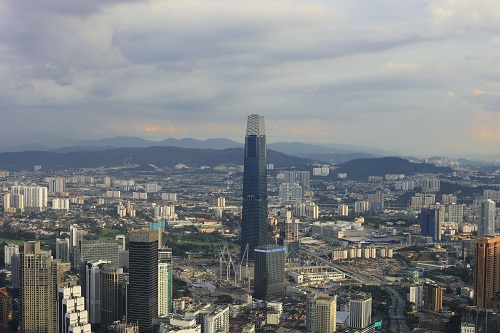Malaysia has over 100 hospitals that can provide maternity care, and around 40 of these have specialist Ob/Gyn services. Healthcare in the country is generally of a good standard, although overcrowding has been reported in the public sector.If you are an expat in the country and are expecting a baby, then you may wish to consider giving birth in the private sector. This is because the limited national insurance schemes available, even if they are open to you as an expat, do not cover maternity care.
However, if you would like to use the public scheme, then you can either pay out of pocket or charge your private insurer for the costs. We will look at some of your options below.
How to decide on a birth plan
A birth plan is a list of what you would like to have happen during labour and afterwards. It is written so that your doctor knows what your wishes and expectations are. When writing your birth plan, you may want to consider the following questions:
• Where do you want to give birth?
• Who do you want to have with you (e.g. your partner)?
• What kind of birth do you want (e.g. vaginal birth or a Caesarian)?
• Do you need any birthing aids?
• Do you want pain relief, and if so, what kind?
• What kind of birthing environment would you prefer?
Maternity care in Malaysia tends traditionally to be consultant-led and hospital-based, but more options are now opening up to women, including home births, births at alternative maternity centres, hypnobirthing and water birthing. For example, Pantai Hospital, with branches in Bangsar and Cheras, offers water births.
You can also contact a doula. She will not be able to carry out medical procedures, but she will be able to help you with your birth plan and provide support for you during the process of labour.

Active birth, in which you move around during labour and adopt different positions, is also becoming increasingly popular in Malaysia. Again, your midwife or doula will be able to advise you.
Epidurals are available in some hospitals but not all. An assessment in 2015 suggested that around 36 maternity units had provision for this form of pain relief. Make sure that you discuss this aspect of your birth plan with your medical provider.
If you would like a home birth, be aware that, among Malaysian locals, most home births are unassisted if they are low risk. This may not be something that you are comfortable with. In saying this, there is the option of having medical professionals with you, too. Unassisted birthing is a controversial practice due to the risks involved.
You can also choose a traditional practice, such as ‘lotus birth’, in which the umbilical cord is not cut, but instead allowed to dry. Such practices may not be your choice, but they are available.
Malaysian maternity care
Prenatal care is available in Malaysia, and you should be offered routine checkups at your local clinic. These will be monthly and then biweekly during your pregnancy. Some hospitals, such as the Pantai chain, offer prenatal classes, including:
• Understanding labour and the delivery process
• Relaxation and breathing techniques
• Basics of infant care
• Preparation for breastfeeding
• Prenatal fitness
You will be offered blood tests for anaemia and other conditions, and ultrasound scans will also be available. Your doctor will issue you with a medical booklet. You will need to inform your employer as soon as your pregnancy has been confirmed.
If you want a C-section, you will need to discuss this with your gynecologist, as this is only available in hospitals in Malaysia, rather than in birth centres. If you would like your partner in the labour room with you, then you will need to check whether this is possible with the hospital. Some Malaysian hospitals offer giveaways after the birth, such as motherhood kits and breast pads.
Some average costs are as follows:
• Monthly checkups: free (public sector); RM 3,000 / US$ 675 (private sector)
• Tests/scans: free (public sector); RM 1,000 / US$ 224 (private sector)
• Normal delivery: RM 60 to RM 2000 / US$ 13 to US$ 450 (public); RM 3000 to RM 10,000 / US$ 675 to US$ 2250 (private)
• C-section: RM 100 to RM 800 / US$ 22 to US$ 180 (public); RM 6,000 to RM 15,000 / US$ 1349 to US$ 3375 (private)
• Subsequent vaccinations: RM 70 to RM 150 / US$ 15 to US$ 30

There is quite extensive post-natal care available, particularly for high risk mothers (e.g. those suffering from high blood pressure or heart disease). The Malaysian authorities say that every hospital birth, alternative maternity center (ABC), or home birth should be notified to a nurse at a nearby health clinic, so that postnatal care can be provided to you at home. You will need to take your baby into the local clinic for a full range of vaccinations, such as hepatitis and diphtheria.
One to three months is considered a normal confinement (at home) for mothers in Malaysia.
Most local insurers that cover maternity benefits only give a small lump sum for delivery or will only pay out if there are complications. Some companies will pay out maternity benefits, but this, and maternity leave, will need to be negotiated privately with your employer. However, in general, if you have worked for your employer for at least 90 days in the four months before starting maternity leave, you will then be entitled to at least 60 consecutive days of maternity leave at full pay. You may be eligible for more leave if you are working for an international company, but check this with your employer. You may also have to negotiate time off for your ante-natal appointments.
The Malay press reports that there is a growing demand for Full Paying Patient (FPP) services that provide private healthcare in government hospitals. Klinik Kesihatan Ibu & Anak, an initiative by the government, provides free checkups and anti-tetanus injections for the expectant mother, but you may find queues or lengthy appointment times.
Will the baby be a Malaysian citizen?
Your child will not be Malaysian simply because they have been born in Malaysia, and Malaysia does not allow dual citizenship.

